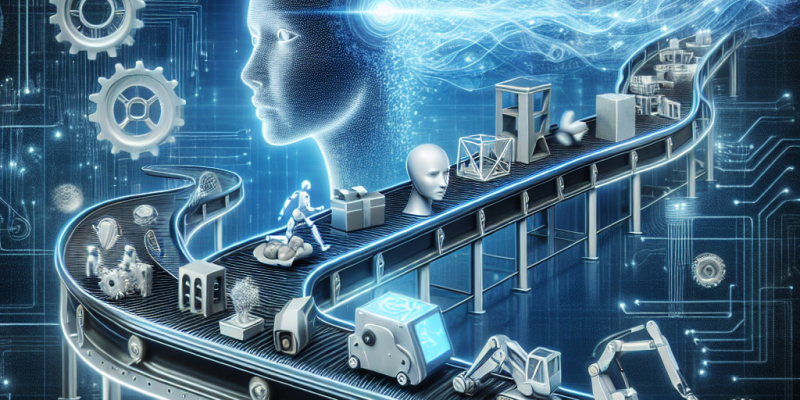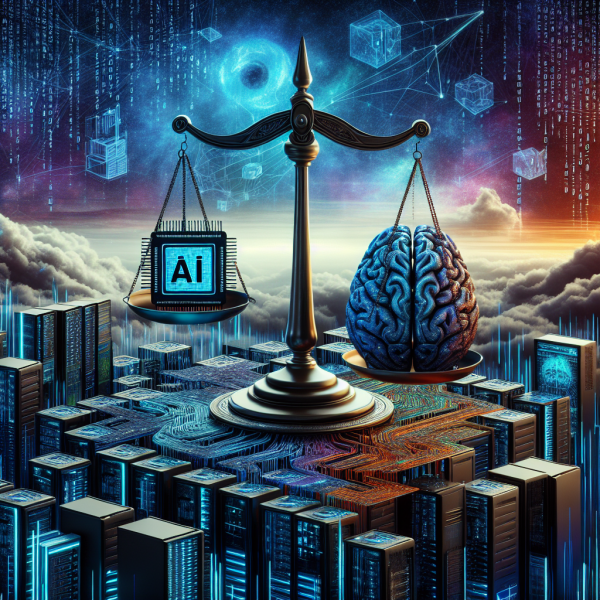Efficiency Reimagined: How AI Is Reshaping Automation Across Industries

In an era defined by rapid technological advances, artificial intelligence (AI) stands out as a transformative force reshaping how industries operate. From manufacturing and logistics to healthcare and finance, AI-driven automation is not merely a trend; it is revolutionizing workflows, enhancing productivity, and driving unprecedented levels of efficiency.
The Evolution of Automation
Automation has long been a cornerstone of industrial productivity, enabling businesses to streamline operations and reduce human error. Traditional automation involved mechanical devices and simple algorithms that executed predetermined tasks. However, with the advent of AI, automation has transcended these limitations. Modern AI systems can learn from data, adapt to changing conditions, and make complex decisions, leading to a new era of intelligent automation.
AI-Powered Automation in Various Industries
1. Manufacturing
The manufacturing sector has been at the forefront of adopting AI-driven automation. Smart factories equipped with AI-powered robotics can analyze real-time data to optimize production processes. Predictive maintenance, powered by machine learning algorithms, enables manufacturers to anticipate equipment failures before they occur, reducing downtime and maintenance costs. This not only streamlines operations but also enhances product quality and consistency.
2. Logistics and Supply Chain Management
AI is transforming logistics by enabling more efficient supply chain management. With AI algorithms analyzing vast amounts of data from shipping routes, traffic patterns, and weather forecasts, companies can optimize delivery schedules and routes. Automated inventory management systems use AI to predict demand, ensuring that stock levels are aligned with consumption trends. This results in minimized waste and improved customer satisfaction.
3. Healthcare
In the healthcare sector, AI-driven automation is enhancing patient care and operational efficiency. AI applications can facilitate rapid data analysis, helping healthcare providers make informed decisions on diagnosis and treatment plans. Robotic surgery systems, guided by AI, enhance precision and reduce recovery times. Moreover, AI chatbots are streamlining patient interactions, from appointment scheduling to basic health inquiries, freeing up medical staff to focus on complex cases.
4. Finance
The finance industry is leveraging AI for fraud detection and risk assessment. AI algorithms can analyze millions of transactions in real-time, identifying suspicious activities that may indicate fraud. Furthermore, algorithmic trading systems have revolutionized how investments are managed, allowing for lightning-fast decision-making based on real-time market data. The use of AI in financial advisory services also enables personalized investment strategies tailored to individual client needs.
5. Retail
In the retail sector, AI is reshaping customer interaction and inventory management. AI-driven systems analyze consumer behavior, enabling retailers to personalize marketing campaigns and improve customer satisfaction. Automated checkout systems powered by AI are reducing wait times and enhancing the shopping experience. Furthermore, retail inventory systems use predictive analytics to ensure that stock levels meet customer demand without overstocking, ultimately improving profit margins.
The Human Element: Collaboration, Not Replacement
While AI-driven automation is revolutionary, it is crucial to emphasize that it is not about replacing the human workforce but augmenting it. AI excels at processing vast amounts of data and performing repetitive tasks, but human intuition, creativity, and emotional intelligence remain irreplaceable. The future of work will be characterized by collaboration between humans and AI, where employees can focus on higher-level strategic tasks while machines handle routine operations.
Challenges and Considerations
Despite the remarkable potential of AI in automation, several challenges must be addressed. Concerns about data privacy, ethical considerations in AI decision-making, and the potential for job displacement are critical discussions that need to take place. Organizations must invest in retraining their workforce and ensuring that they leverage AI responsibly.
Conclusion
AI is reimagining efficiency across industries, driving a new wave of automation that promises unparalleled productivity and innovation. As businesses embrace these advancements, they are not only optimizing their operations but also elevating the standards of service and product offerings. The journey ahead will require a careful balance of technology and humanity, ensuring that we harness the full potential of AI while addressing its challenges. In this new landscape, efficiency is not just an outcome; it is a fundamental rethinking of how we work, learn, and collaborate in an increasingly interconnected world.














